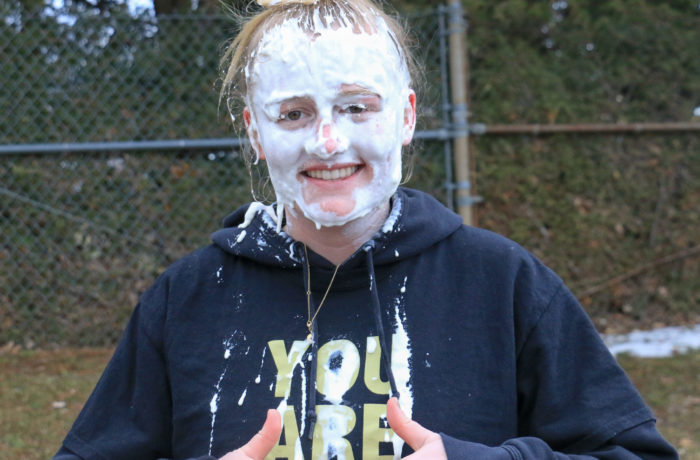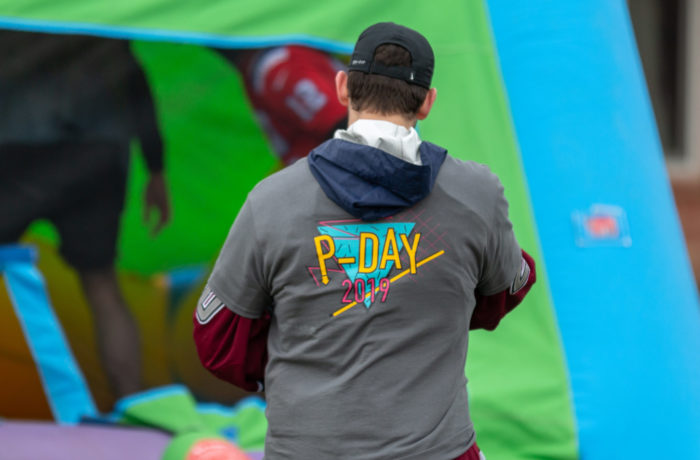
You’re walking back from Durick Library on a late Sunday night, listening to music and texting your friends about the hours of homework you just piled through. In the corner of your eye, you sense footsteps inching closer. You put down your phone as chills run up your spine, and your eyes dart side to side as you wonder if you are facing a true threat or if you’re only paranoid.
With kidnappings, disappearances, and rapes seemingly more prevalent in the age of social media, it’s often easy to be on edge, whether it be walking alone from north campus at night, or in the midst of a crowded bar downtown on a Saturday.
“Statistically, we’re a safer society than we were 20 years ago,” said Doug Babcock, director of public safety at St. Michael’s College. “But, we see far more of what does happen than we did 20 years ago, and it’s much more in the consciousness of basically everybody at this point.”
Don Demar, an officer assigned to the Chittenden Unit for Special Investigations out of Burlington, which investigates all sex offenses that occur in Chittenden county, provided statistics around reported sexual assaults in Chittenden county.
“There were 228 reported sexual assault cases in Chittenden County in 2018 alone,” Demar said.
The recent headline-news of 23-year-old Olivia Ambrose, the young woman from Boston who was kidnapped and found alive on January 19, has generated conversation of ‘stranger danger.’ Students on campus often worry about this, most especially when walking to and from north campus [see Bring back the bus, page 14].
“As an art major I have to worry about getting to and from north campus, which can feel very unsafe,” said Kelly Cullen, ’21. “I’ve heard many stories about people walking to and from north campus, like cars slowing down, or people trying to talk and get your attention. I don’t feel confident in my knowledge of ways to protect myself. I think if something were to happen to me I would probably just run.”
When topics such as these come to light, it opens up the conversation of safety awareness, and what we as a society can do to stop these events from happening, Babcock said.
“It makes people have conversations, and if people take action learning about it, and training, it can be good,” Babcock said. “If people just see this and it causes anxiety, and they don’t do anything about it, it makes us more anxious as a society. Us having more access to information increases our responsibility to do something.”
Fear around recent tragic news can offer an opportunity to bring forward these taboo conversations, allowing a platform for discussion, said leader of the Feminist for Equality Club Monique Gardon, ’21.
“The publicization of these events sort of brings it to the foreground and makes us more aware of it,” Gardon said. “If we’re not talking about it, and if something happens to somebody, they’re not as eager to come forward. It’s a more intimidating thing to talk about.” Demar and Babcock offer simple suggestions on how to take precautionary measures.
Make a plan, stick to it:
“Have a plan about who you’re going with and and where you’re going, and stick to that plan,” said Babcock. Before heading out, discuss a process for changing the plan, and don’t split up, he said.
Never walk alone at night, said Demar. Part of that is to never stay at a party after your friends leave.
Put away your phone.
“When we’re on our iPhones or Androids or whatever it may be, we kind of lose focus on what’s going on around us.” Demar said it’s compounded by a social environment with alcohol, drugs.
Follow your gut, and don’t trust too easily.
“Don’t trust someone when you first meet them, because you don’t know who they are,” Demar said. “I don’t want people to fear that everybody is malicious and is going to cause you harm in some way shape or form, but don’t trust them. Listen to your sixth sense. If something doesn’t feel right, it probably isn’t.”
Take a self defense course:
Take advantage of the rape, aggression, and defense [R.A.D] course offered at St. Michael’s every semester, Demar and Babcock both suggest. The class is only taught for women, and focuses on how to protect yourself against an attacker.
“Everybody should know some basic self defense,” Babcock said. “Everybody should know some basic survival information. In the R.A.D class, it’s not only about how to hit somebody. It’s also about situational awareness.”
The BIGGER picture
The root of the problem lies not within what young adults should do the protect themselves against an attacker, but how to prevent the attack from happening in the first place, said Gardon. This would involve a social shift, focusing on holding men accountable for their actions, as opposed to only expecting young women to take steps in protecting themselves, she said.
“In the now, we can’t enact a total cultural and social shift to make men accountable for their behavior,” said Gardon. “Just seeing their response to the Gillette ad [see Gillette calls out men, page 5] shows that our society is sort of screwed up, and the people who need to change aren’t ready to make that change.”
Escalating this cultural shift starts by taking a stand against the “boys will be boys” mentality, and teaching boundaries and respect to younger generations, Gardon said, adding that it will also involve addressing issues surrounding male aggression.
“People should be able to go out, and feel safe, and not think that they need to go to the bathroom with a friend,” Gardon said. “In a townhouse, I should be able to go upstairs to pee and not worry that anybody’s following me. For that change to happen, it needs to be from a young age, teaching boys and girls about general respect for everybody.”


